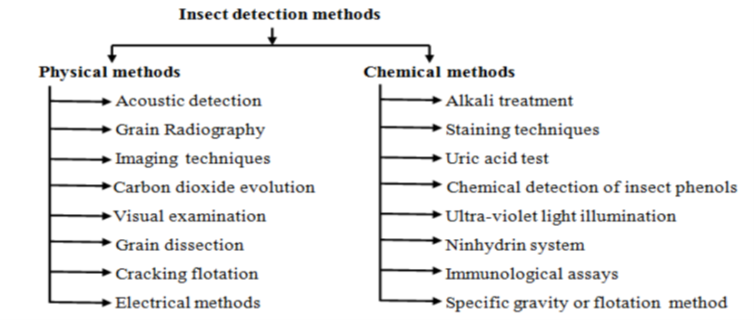Issue:
The Customs and Border Protection (CBP) agency works with the U.S. Department of Agriculture’s APHIS (Animal and Plant Health Inspection Service) and FWS (Forest and Wildlife Service) departments to enforce laws prohibiting or limiting the entry of invasive species into the United States. The challenge is to detect multiple pests, rodents, and other invasive species at ports of entry before they make their way into the country. Currently, CBP Agriculture Inspectors inspect for pests using manual techniques. This method is labor-intensive and has many drawbacks, including high error margins that can vary depending on the inspector, lighting, and other factors; the large amount of time it takes to inspect even one bag; and the high costs associated with the labor required.
Objectives:
- The goal of this joint is the identification and examination of methods for pest detection in stored products that are also applicable for pest detection at US ports of entry.
- A review of currently available instrumental methods for detecting invasive species will be conducted, but this project will also investigate microwave and other methods.
- Use the research that was conducted previously by MSC for detecting agricultural pests in stored products.
- Examine methods to determine how well suited they may be for ports of entry applications and food storage facilities in the presence of strong background acoustic and EM noise.

Value Proposition:
The outcome of the work will be instrumental methods and apparatus providing faster and more accurate inspection at US ports of entry. The developed methods will be used for prevention of pest infestation of food commodities and stored products. Faster methods will increase the speed of inspection and free up inspector time, which will lead to a higher number of commodities inspected. In addition, this work can easily benefit and be adopted by Federal, State, and Local agencies to use in their inspection of invasive species that will highly improve Integrated Pest Management and pest detection in stored products.
| Project Lead | The Trustees of Stevens Institute of Technology |
| Research Team | PI: Hady Salloum, Ph.D. Stevens Institute of Technology (Maritime Security Center) Co-PI: Gregory Pompelli, Ph.D. Cross-Border Threat Screening and Supply Chain Defense |
| Budget | $199,953 |
| Duration | Nov. 2022 – Nov. 2023 |
